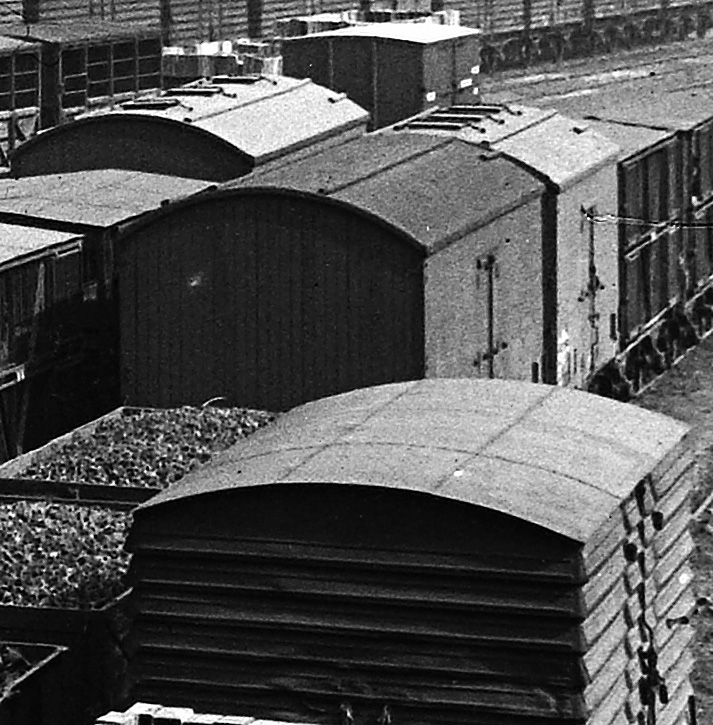T insulated iced vans (192 - 417)

ABOVE: T 417 at Tottenham, off register and on its way to being scrapped, 1978.
|
The T's had a ice bunker running along the middle of the ceiling that was filled with ice from hatches in the roof. They were used to transport meat carcasses or other goods that required a cool temperture. Their walls were about 6 inches thick for insulation. The vertical channel at the end was a drain for the ice bunker.This series of T vans had a 15 1/2 ton capacity. Truly a relic from a bygone age they lasted to the late 70's in general boxvan service.
A very comprehensive article by Phil Dunn on this series of T vans appeared in the April 1996 issue of A.M.R.M. |
|||||||||||||||
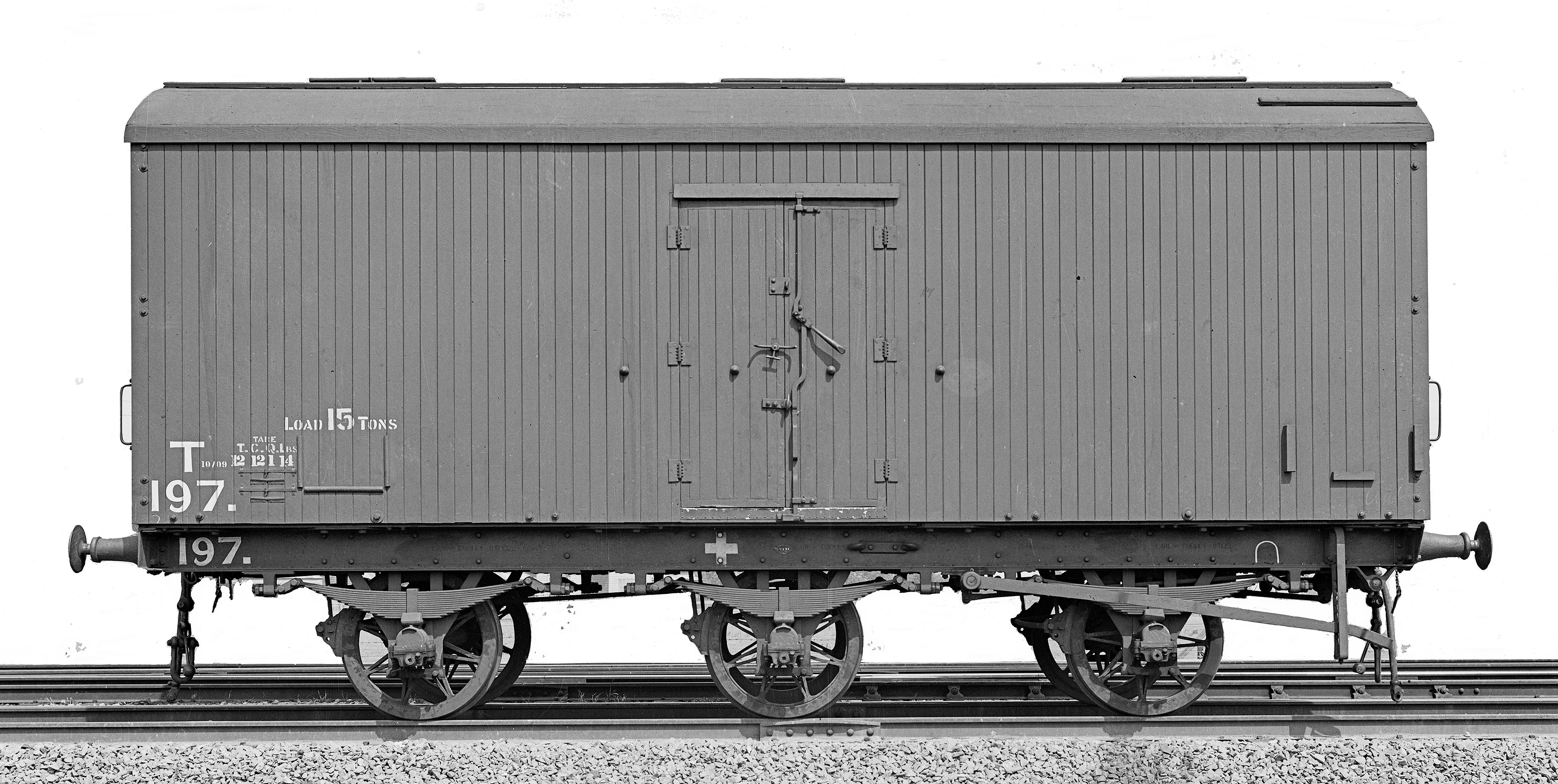
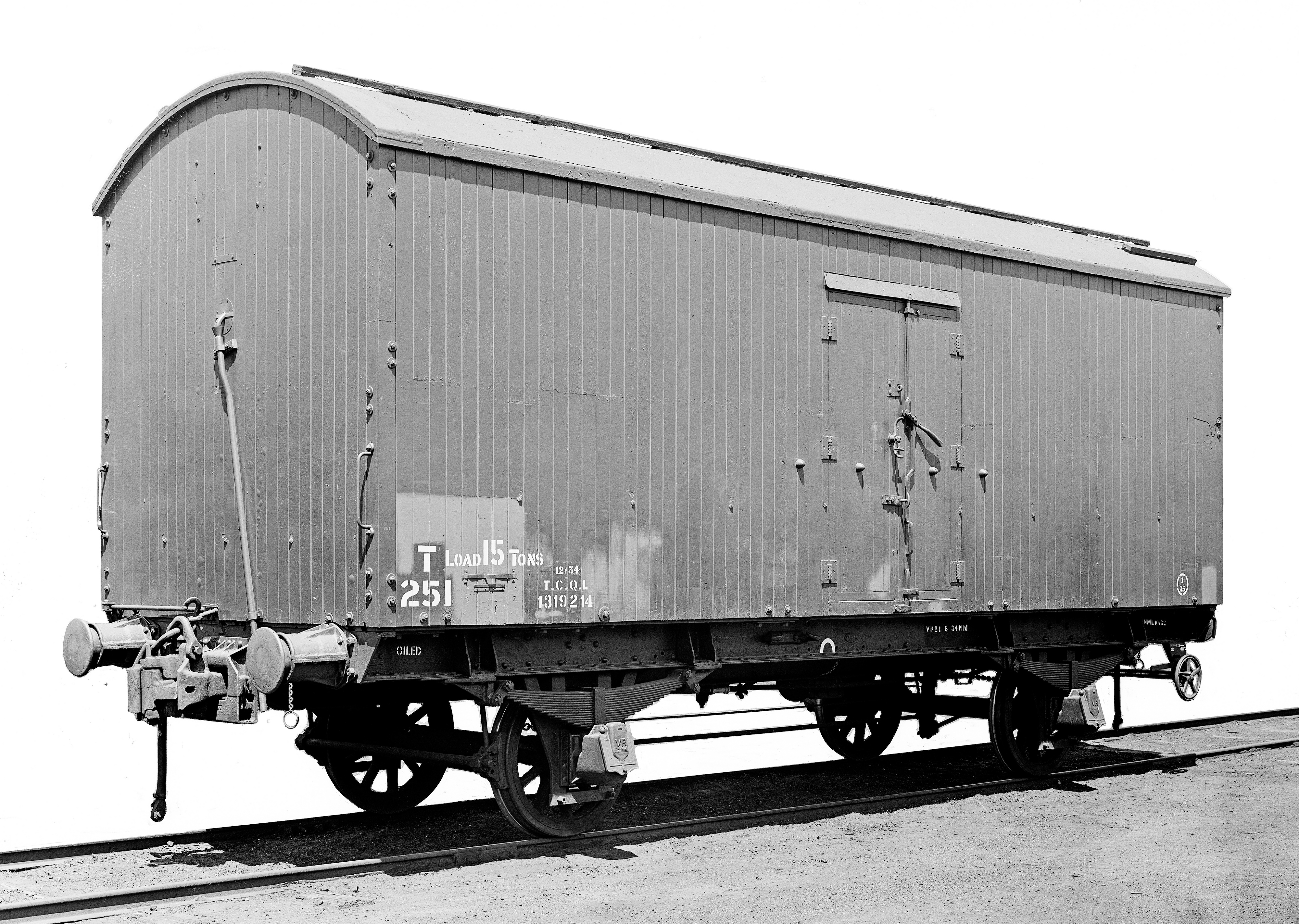
ABOVE: T 251 circa 1934, note the lack of side and end bracing and the earlier design door handle. This photo was likely taken to show the newly added autocouplers Photo courtesy Victorian Railways
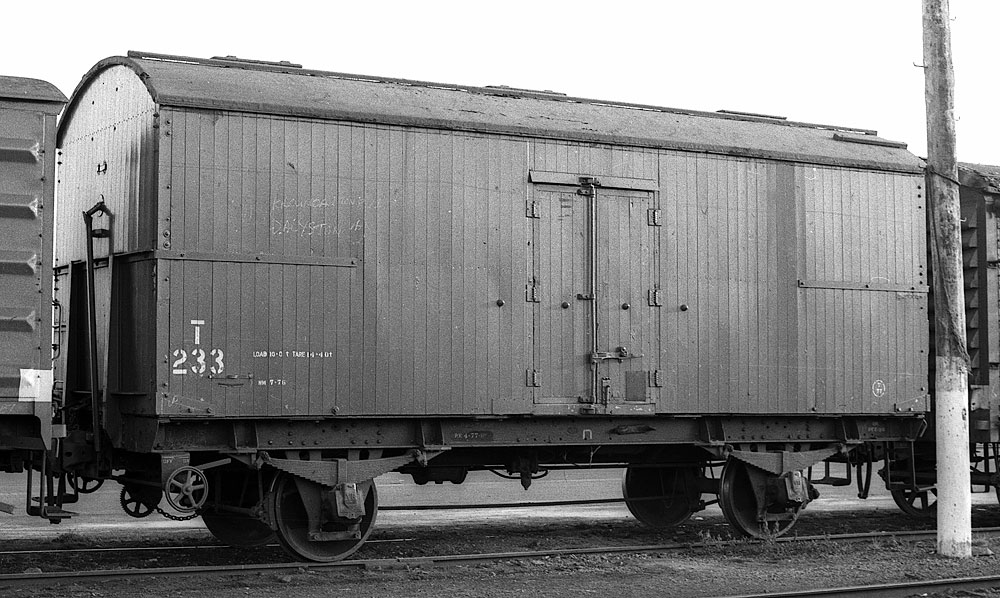
ABOVE: T 233 at Dandenong July 1 1978.
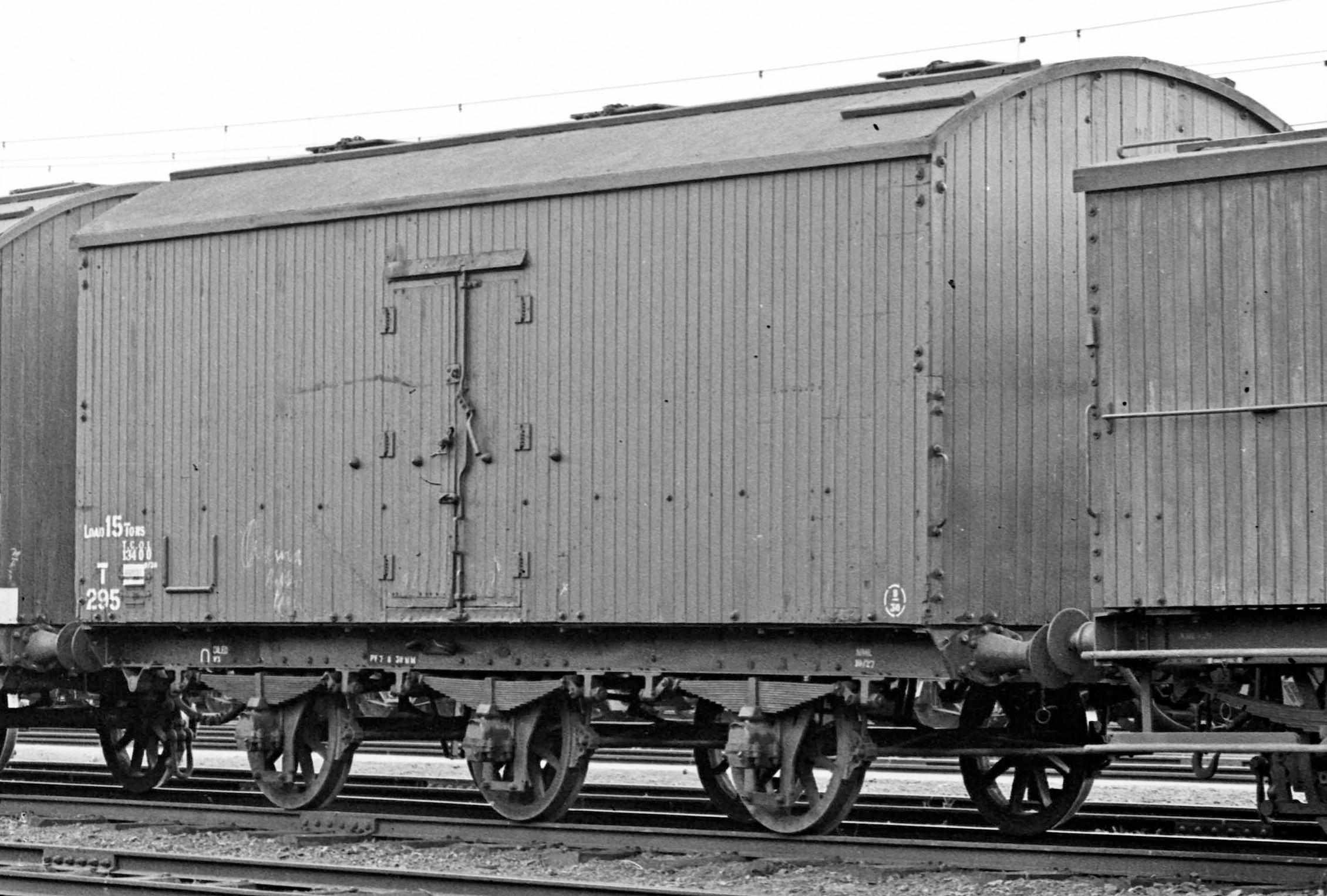
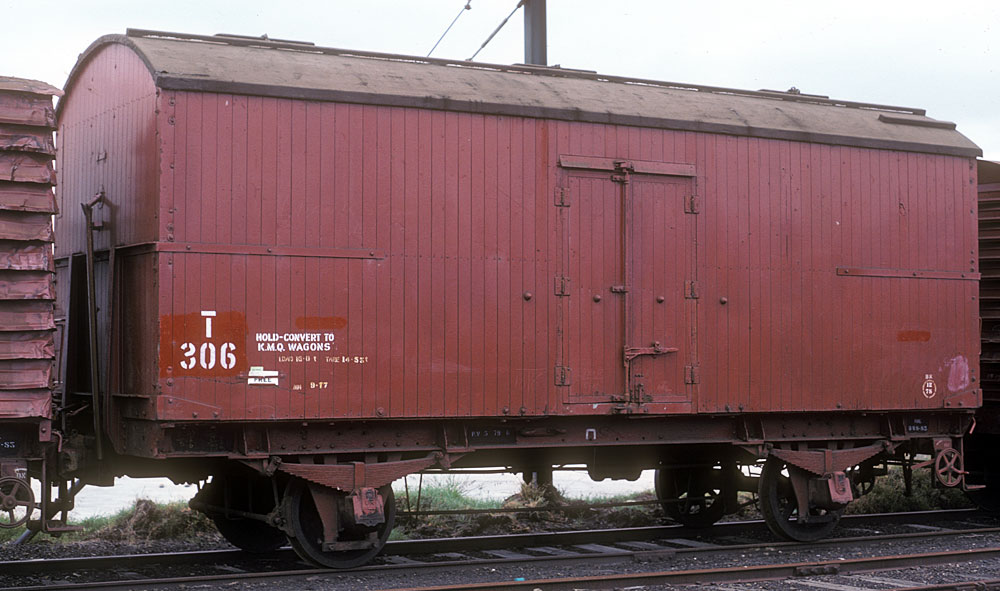
ABOVE: T 306 at Port Melbourne Dec. 3 1979
Photo courtesy Rob O'Regan

ABOVE: T 306 photographed 1978.
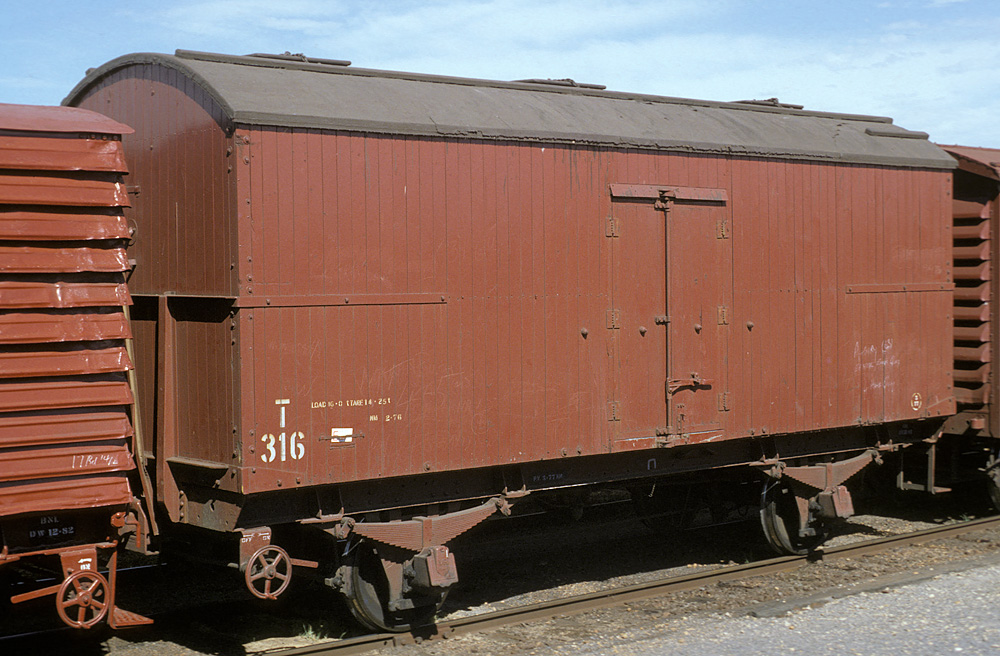
ABOVE: T 316 at Murchison East, Feb. 20 1978
Photo courtesy Geoff Winkler
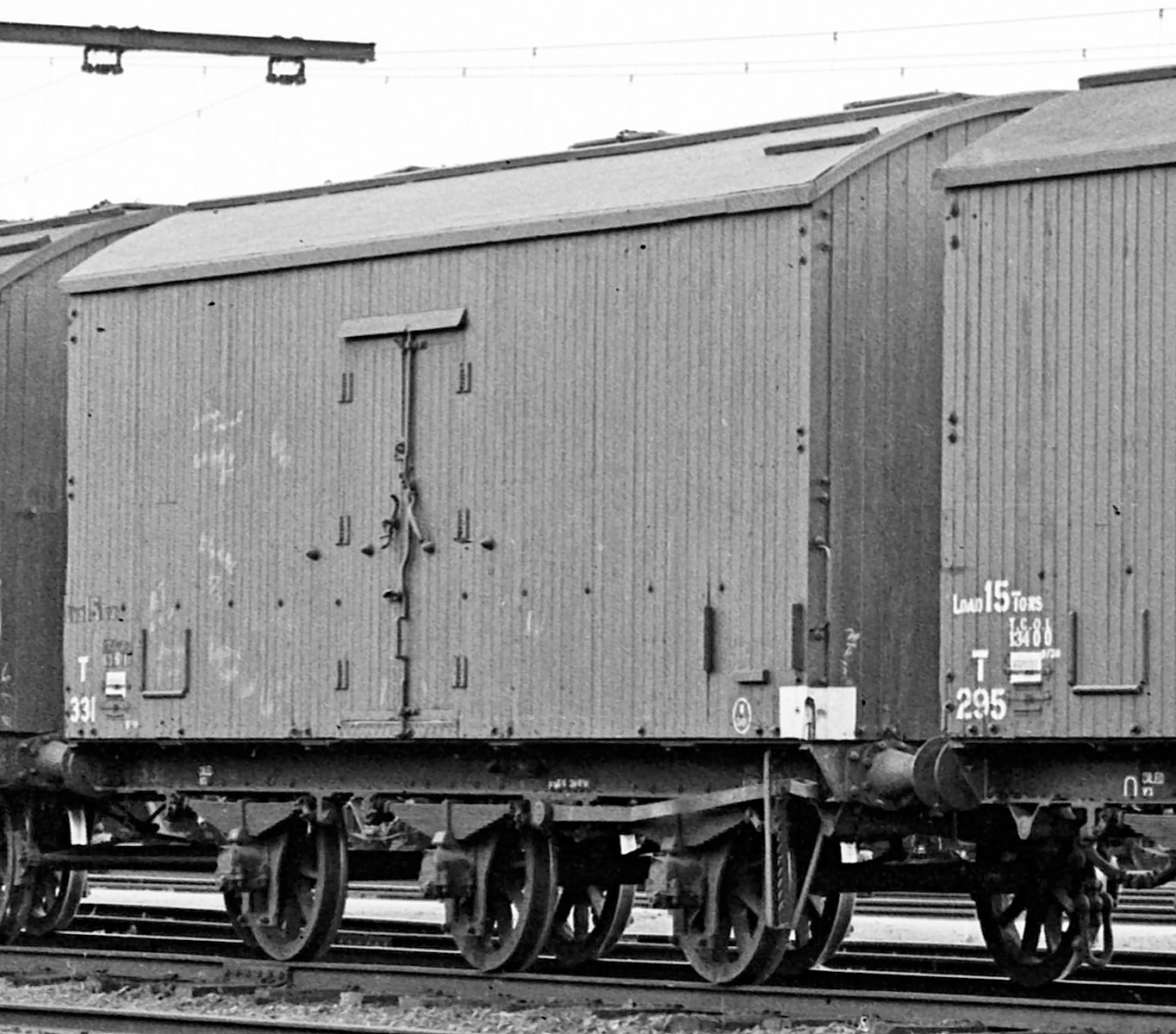
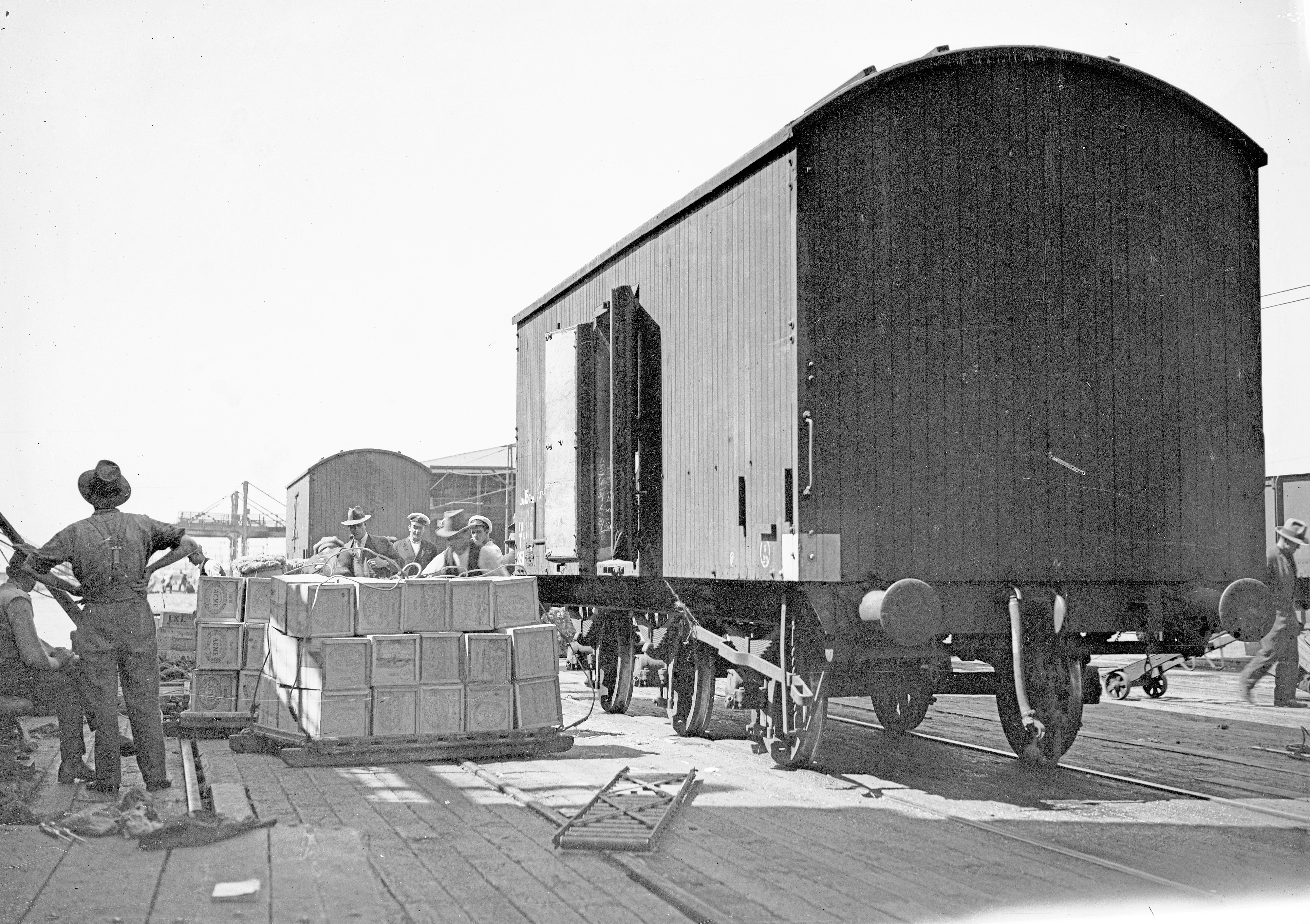
ABOVE: T 351with butter crates at Pt Melbourne pier, circa 1930s, photo courtesy PROV.
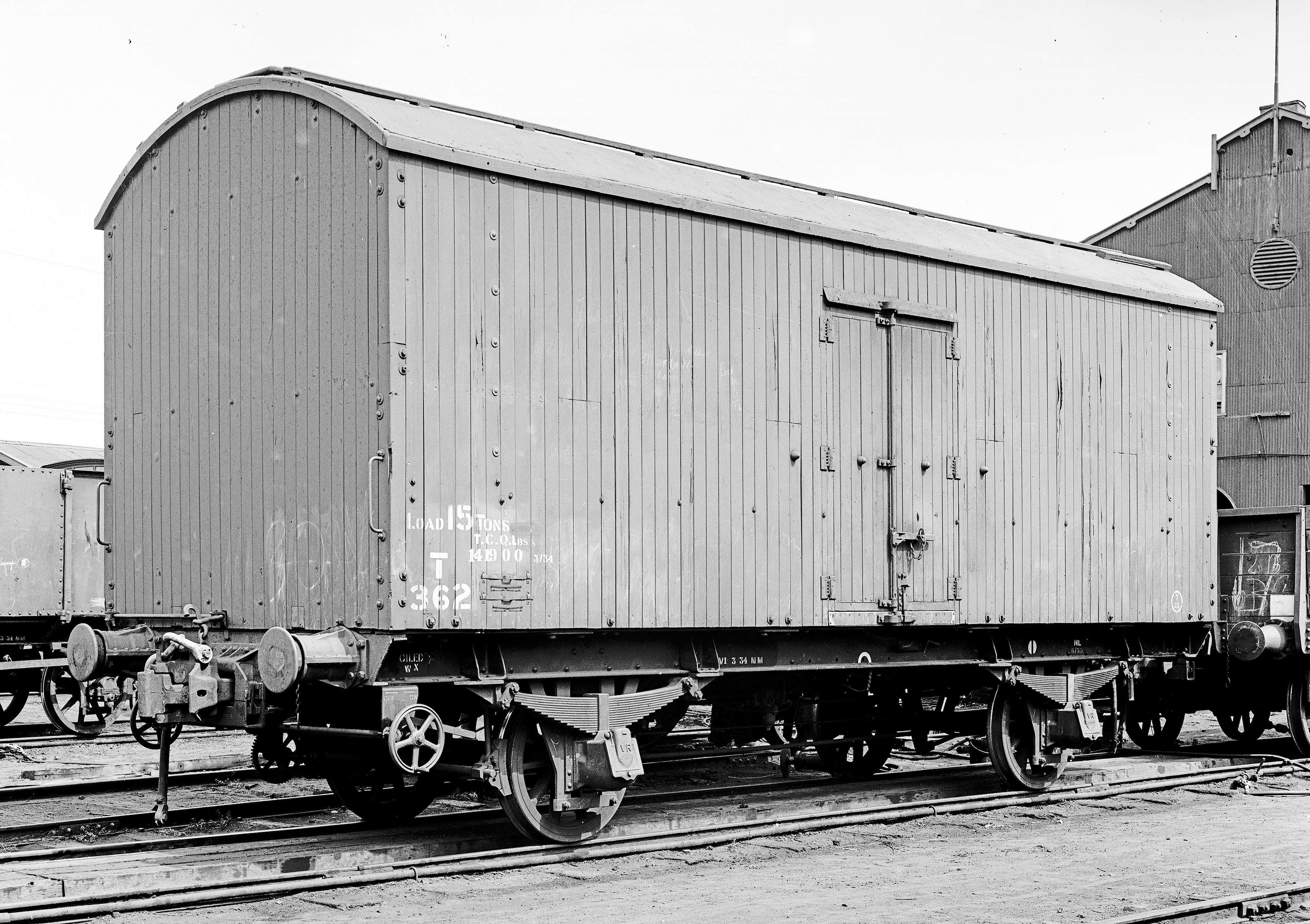
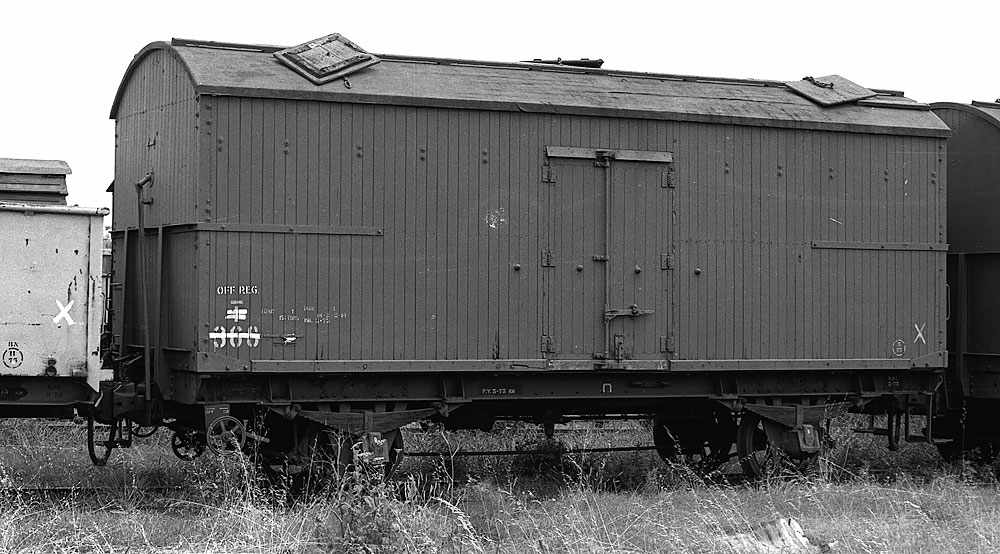
ABOVE: T 368 at Newport workshops Feb 1978


ABOVE: T 401 circa 1950s. (official VR photo)

ABOVE: T 307 circa 1927, T 307 was built 1915, it lost its centre axle in 1933 when it was autocoupled. photo courtesy PROV
BELOW: As built, T's 369 - 392 entered service as TFM's, they carried frozen carcasses. They lacked ice hatches but got them when they were converted to regular T vans circa 1933. Photo date 1930's
